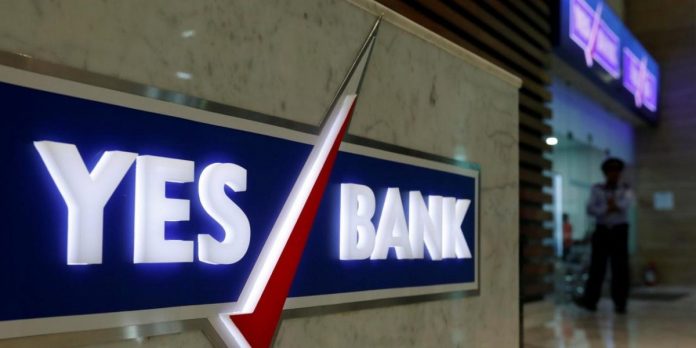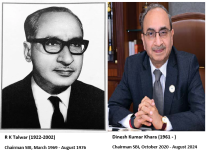Claudius, in Hamlet, noted that “When sorrows come, they come not single spies but in battalions.”
He could well have been speaking about the woes of Yes Bank shareholders. The last few months, and in particular November, have been a punch in the gut to owners of the stock.
On November 14, Ashok Chawla, the bank’s non-executive chairman, and Vasant Gujarathi, the head of the board’s audit committee, both abruptly quit. The next day, O.P. Bhatt, the external expert appointed to assist in the selection of the new chief executive officer (CEO), departed equally suddenly.
The stock lost Rs 7,252 crore in the span of two days, closing at Rs 191 on Friday, down 14% from its Wednesday close. It appears to have only partly recovered its losses on November 19.
The exits came on the heels of other tumultuous developments. Yes Bank is currently plagued by a feud between the two founder-factions (Rana Kapoor and Madhu Kapur). In September 2018, the Reserve Bank of India intervened and over-turned the bank’s decision to extend CEO Rana Kapoor’s tenure for another three years.
When you take into account that two of the most recent board appointments are also controversial, the bank’s board begins to resemble the climax of Shakespeare’s gory masterpiece.
Interestingly, none of the three gentlemen who recently resigned (Chawla, Gujarathi and Bhatt) really belonged on the board in the first place.
Ashok Chawla was named in a Central Bureau of Investigation (CBI) chargesheet filed on July 19, 2018 in the Aircel-Maxis case. The case dates back to when Chawla was the secretary of economic affairs in the Central government. The moment he was named in CBI’s chargesheet, he was rendered unfit to be on the board of any bank, if one goes by the RBI’s criteria. He should have put in his papers four months before he actually stepped down.

Rana Kapoor. Credit: Reuters
Gujarathi was a member of the audit committee since his appointment in April 2014, and had been chairman of the same committee since April 27, 2016. It is possible that the board belatedly held him accountable for the bank’s two consecutive years of fudged accounts in FY’2016 and FY’2017.
While Chawla and Gujarathi’s resignations were announced simultaneously on November 14, and led to the fall in the bank’s share price by 7% on November 15, O.P. Bhatt’s resignation was announced on grounds of “potential conflict of interest” in the evening of November 15, and contributed to the further fall of 7% in the stock price the next day.
A closer examination of Bhatt’s appointment on October 5, as one of two external candidates to assist the nominations and remuneration committee (NRC), reveals how unusual it was, and how it was best avoided.
Bhatt, former chairman of the State Bank of India, is an independent director on the board of Standard Chartered Bank (SCB) since January 2013. As per SCB’s 2017 disclosures, India contributes to around 7% of its income, and hence Yes Bank and SCB are competitors in this market.

Ashok Chawla. Credit: Reuters
It is highly unusual for Yes Bank’s NRC to appoint, as one of its two external candidates to assist the board in the selection of Yes Bank’s CEO, an individual who is a director of a competitor bank. It was also inappropriate for Bhatt to have accepted such a lucrative assignment, and it is equally strange that SCB permitted one of its independent directors to be associated with the CEO selection of a rival bank. Bhatt’s appointment in the committee to select a CEO for Yes Bank had inherent conflict of interest.

O.P. Bhatt. Credit: Reuters
SCB being a prominent foreign bank in India with operations similar to Yes Bank’s, it would have been, along with other foreign banks, a natural poaching ground to shortlist future CEOs for Yes Bank. That the members of Yes Bank’s NRC, O.P. Bhatt himself and the SCB board could not visualise such an obvious and glaring conflict of interest is a comment on the state of corporate governance in the private banking sector.
With Rana Kapoor’s forced departure by January 31, 2019 (at the instance of the regulator), the absence of a truce between the warring founder factions, the sudden departures of its chairman, head of the audit committee and a key external advisor, the leadership of Yes Bank is clearly in turmoil. In such a situation, one would have expected Yes Bank to select new inductees on the board with abundant caution.
However, the board seems have had other ideas. It recently elevated as executive director Rajat Monga, the chief financial officer who certified two consecutive years of misreported accounts. It remains to be seen whether Monga’s appointment will be cleared by the RBI, which had in the first place hauled up the bank for misreporting.
The November 14 appointment of Uttam Prakash Agarwal, a chartered accountant-cum-politician, to the board should also raise eyebrows. It appears Agarwal may chair the bank’s all-important audit committee.
On Tuesday (November 20), to cap things off, former telecom secretary R Chandrashekhar, who was an independent director on the board, resigned, saying he “wasn’t happy with the developments taking place in the recent past and the way it was handled”.
Yes Bank’s share price has halved since August 20 primarily on account of the regulator’s loss of confidence in its founder-CEO. At such a crucial juncture, it was critical for the board to rise to the occasion and induct directors with impeccable credentials.
Sadly, however, the board’s casual attitude to corporate governance only signals further troubles. At the end of Hamlet, after the entire Danish royal family has met a grisly end at its own hands, the prince of Norway takes over the crown. Shareholders better hope that Yes Bank avoids this fate.
Hemindra Hazari is an independent market analyst.














